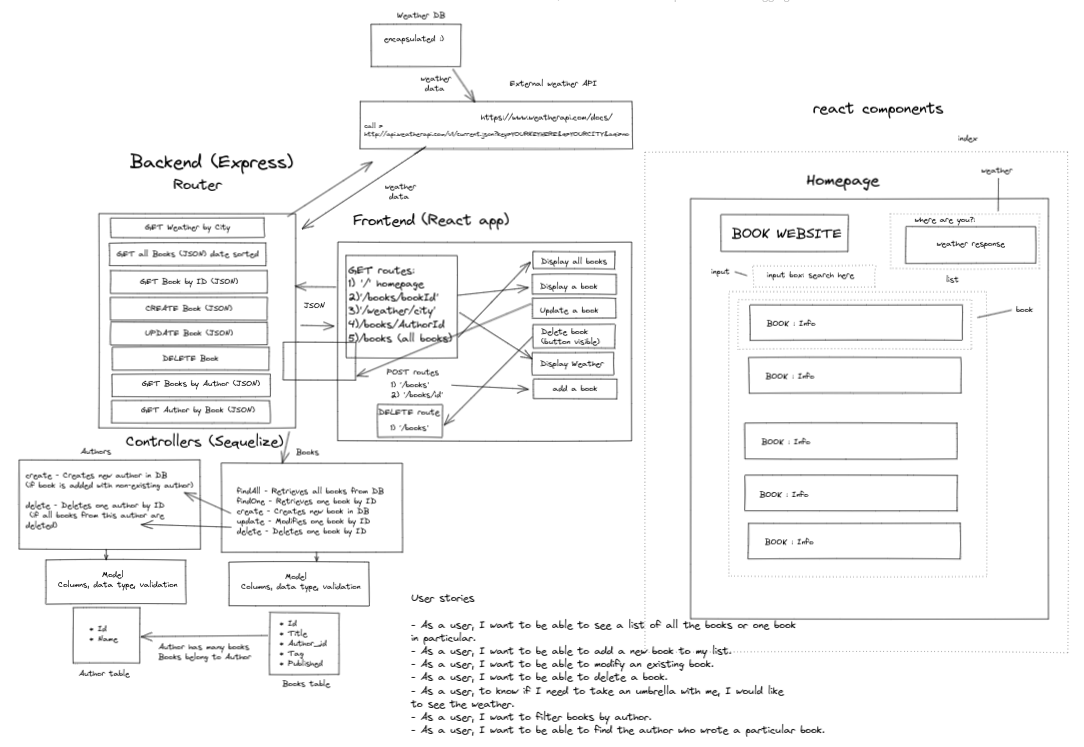Job hunting after Makers
.jpg)
The week after finishing the Makers Academy course, was dedicated to give us an intense introduction to job hunting in the unknown world of tech.
First workshop: Tech test part 1 - Fundamentals (Design principles)
In this workshop, we discussed the core principles of Object Oriented Programming that we hadn’t quite covered as such during the course and we were likely to be questioned about during a technical interview. We had certainly used most of the following principles, but didn’t really know they had a name.
- Object Oriented Principles: Abstraction, Polymorphism, Inheritance and Encapsulation (or as some coaches like to call them, “A PIE”).
- SOLID Principles: Single Responsability Principle, Open-Closed Principle, Liskov Substitution Principle, Interface Segregation Principle and Dependency Inversion principle. If you are trying to land your first job in tech, I would advise you to make sure you can easily explain all these principles, they will also help you be a better programmer!.
Second workshop: Tech test part 2
During this session, we were put in groups to discuss how an application would work behind the curtain, if the user is able to add, delete and modify a list of books and authors, and if they are also able to see the weather on the same screen, using an external API. We were also asked to make a diagram and give a brief explanation. Once more, I don’t think we had quite realized how important it is to be able to describe how an application works, from the user interface to the database, and I think it was a great exercise to review these contents, and another very essential thing to know for an interview. This is the diagram my group and me made for the occasion:

Third workshop: CV
Our third session was a review of how to make an impressive CV. There were a lot of interesting tips in order to make a Github CV that would catch the eye of out potential employers. Some of the things they put more emphasis on:
- If you have a skills section, you need to link those skills to real-life situations where you have demonstrated them.
- Put direct links to your projects, LinkedIn, blog or portfolio. Make it easy and interactive for whomever is visiting your CV to find you and your work.
- Make sure that if you mention particular technologies or projects on your CV, your are comfortable discussing these in an interview.
Fourth workshop: Cover letters
Writing your first cover letter can be a challenge in itself. For some of us, it is difficult to know how to sell ourselves well, and we even feel uncomfortable doing so.
One of the points our coaches made, was that it was crucial to scan a job advert for required/desired skills/tech, and try to go through them on your cover letter, to demonstrate why you are the perfect and most awesome candidate for that role.
In this workshop, we were given a table that we could fill in with paragraphs for our cover letters. On the right, we would have the skill or tech that a particular job might require, and on the right, one or more paragraphs covering why we had that skill or knew that technology, and some “proof” of it, either through a previous job or a Makers experience. This would make, after a while, writing cover letters a very quick and almost mechanical process, in which we could pick up different paragraphs and change small things to adjust them to the job we are applying for.

Coaching sessions
During the job-hunting time we also have access to several kinds of coaching sessions:
- General coaching sessions: We are entitled to a few of these, and can use them to discuss any aspects of the job-hunting process and ask for advice or support on any areas we feel we are struggling with.
- Interview alerts: If we have an interview coming, we can fill-in a questionaire and a coach will reach-out to book a session to prepare the interview.
- Cover letter Wednesdays: Once a week, we can send one of our cover letters to a coach for some tips on how to improve them.
- Daily stand-downs: At the end of every day, we can join the stand-downs to share with out peers and one of the coaches any experiences or difficulties we are facing during the job-hunting process.
Finding the first job within this industry is not easy, there are not that many people willing to give newbies an opportunity, but a few companies do know the value of training people from scratch, and you will find one of them eventually.
Job-hunting can be a lonely, unrewarding and unexpectedly hard task, in which you can find yourself putting lots and lots of effort in and not feeling heard or seen. As you can see, there is support everywhere, but you need to constantly remind yourself that it is there for you, and you are not any less strong for asking for help.
Most recruiters and companies receive so many applications that will not bother replying to all of them. You may send several dozens of applications in a week and not receive any replies at all. It is essential to try and be kind to yourself, remember that you are good at what you do, you just need a chance to prove it, and it will come.

I would say that if you have just finished Makers Academy, your best chances for finding a job will be by keeping an eye on their job board (Makers Hub) and applying to the jobs they post, or through the Careers Fair that takes place every three months. The companies that announce their positions there already know Makers graduates and know what we can do, and will be willing to give you an opportunity to prove yourself through a tech test or an interview.
That doesn’t mean there are not other places to look for jobs. My favourite platform is Otta, which allows you to set your job preferences and then recommends you a series of jobs that match them. The only downside I could see is that many companies that advertise there (but not all of them) are start-ups, and therefore they may be less willing to hire new graduates, but I have also noticed that at least a 50% of the companies get back to you, even if it is to say that you don’t have the job (which is highly appreciated).
Another good platform to have a look at is Hackajob, in which you can train doing tech-tests in a variety of languages and receive invitations to apply to jobs.
I have tried several other websites including LinkedIn, TotalJobs, Indeed, Reed… but noticed that companies didn’t really put that much effort in their adverts and most didn’t get back to me at all, so I felt like they were a waste of time.
Something else I would recommend is to make a list of companies you would love to work for, whether it is because of the tech they use or the product they work on, and then look for jobs on their websites. You can even email them explaining why you would be delighted to be able to work for them in particular and to please keep your email in their list for future positions. I think you are way more likely to get a job if you show genuine interest for what their company does.
If you are at this point in your career in tech, I wish you all the luck in the world. Be patient and take care of your health and wellbeing in the meantime, reach out if things get too much for you. You are enough and everything will be alright <3
